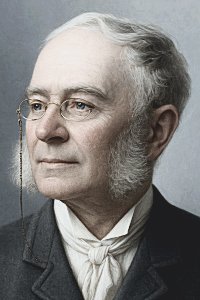Introduction

Words: Reginald Heber, 1812.
Music: All Saints Henry S. Cutler, in The Hymnal with Tunes Old and New, by John I. Tucker, 1872 (🔊 pdf nwc).

Can you drink the cup I am going to drink?
Matthew 20:22

Words: Reginald Heber, 1812.
Music: All Saints Henry S. Cutler, in The Hymnal with Tunes Old and New, by John I. Tucker, 1872 (🔊 pdf nwc).

In Mrs. Ewing’s Story of a Short Life it is the favourite hymn in the barracks, where the soldiers call it the ‘tug of war’ hymn. The officer’s son, who had been crippled for life by an accident, begs just before his death that the soldiers will sing it again.
They go under his window, and when in the midst of the verse, ‘A noble army, men and boys,’ a hand is seen at the window pulling down the blind. The brave sufferer is gone. The story made the hymn widely popular among children as the ‘tug of war’ hymn.
Telford, p. 410
This hymn was sung in the 1975 movie The Man Who Would Be King, which was nominated for several Academy Awards.
The Son of God goes forth to war,
A kingly crown to gain;
His blood red banner streams afar!
Who follows in His train?
Who best can drink His cup of woe,
Triumphant over pain,
Who patient bears his cross below,
He follows in His train!
That martyr first, whose eagle eye
Could pierce beyond the grave;
Who saw his master in the sky,
And called on Him to save.
Like Him, with pardon on His tongue,
In midst of mortal pain,
He prayed for them that did the wrong:
Who follows in his train?
A glorious band, the chosen few
On whom the Spirit came;
Twelve valiant saints, their hope they knew,
And mocked the cross and flame.
They met the tyrant’s brandished steel,
The lion’s gory mane;
They bowed their heads the death to feel:
Who follows in their train?
A noble army—men and boys,
The matron and the maid,
Around the Savior’s throne rejoice,
In robes of light arrayed.
They climbed the steep ascent of Heav’n,
Through peril, toil and pain!
O God! to us may grace be giv’n,
To follow in their train!